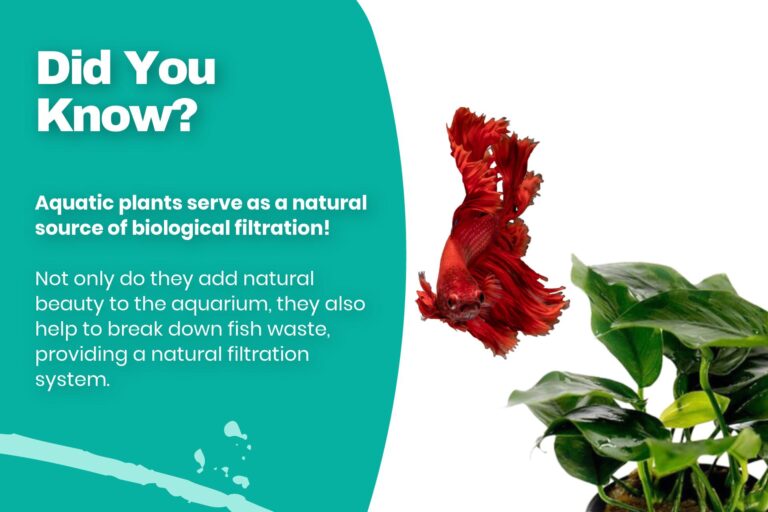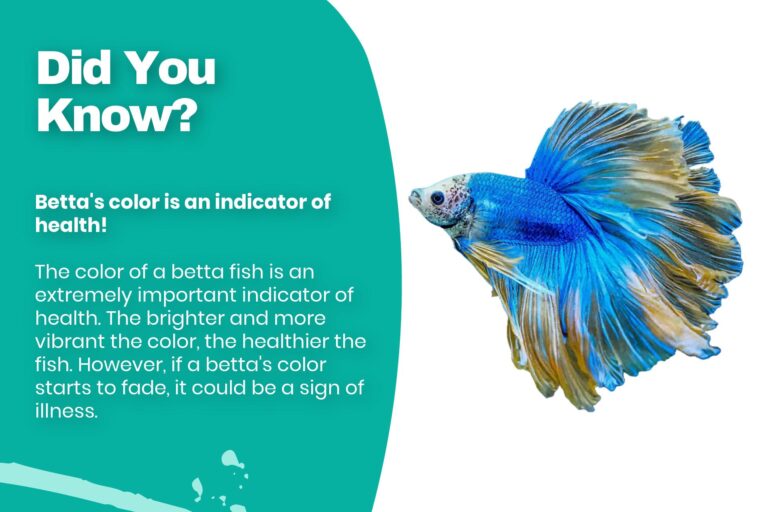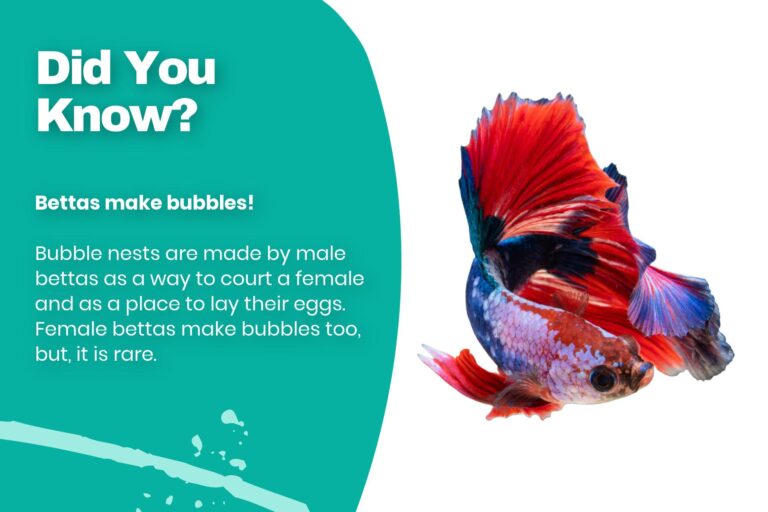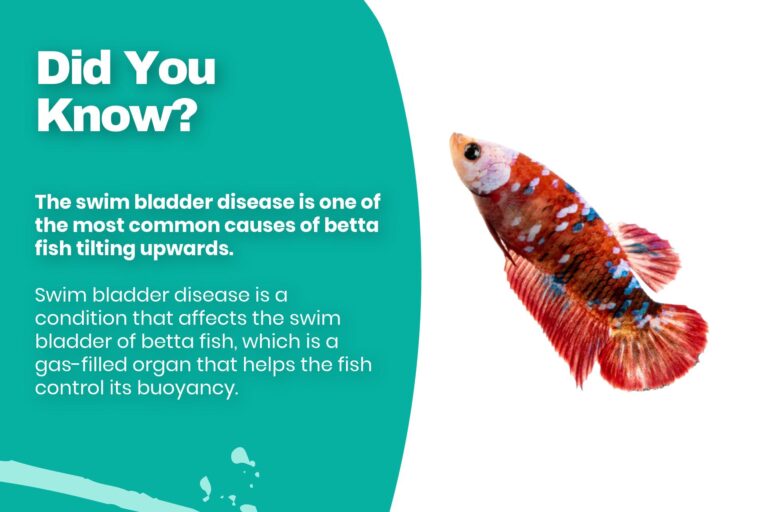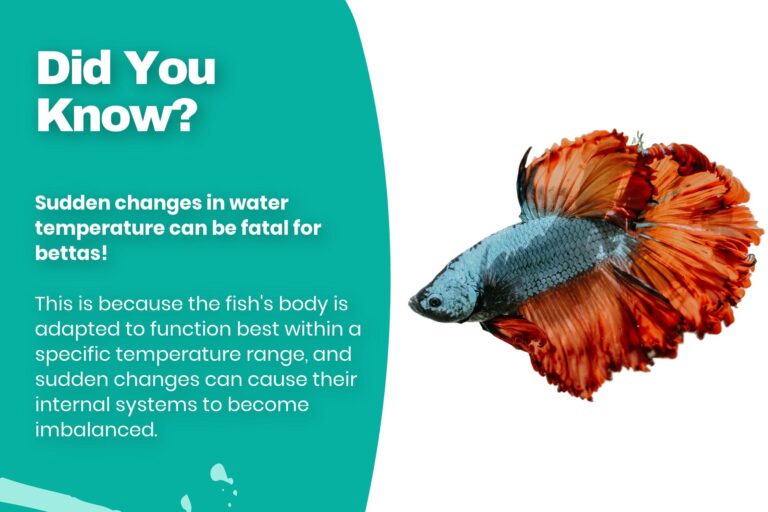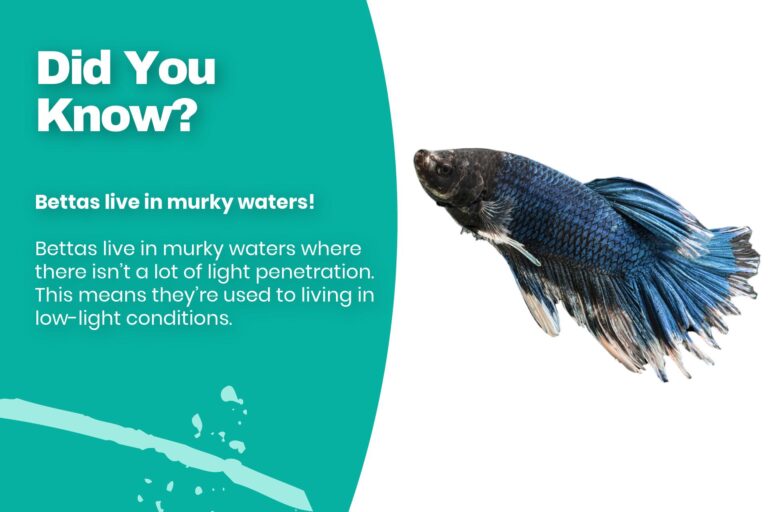Is Your Betta Fish At The Bottom Of The Tank Most Of The Time? Here Are The Top 7 Reasons Why
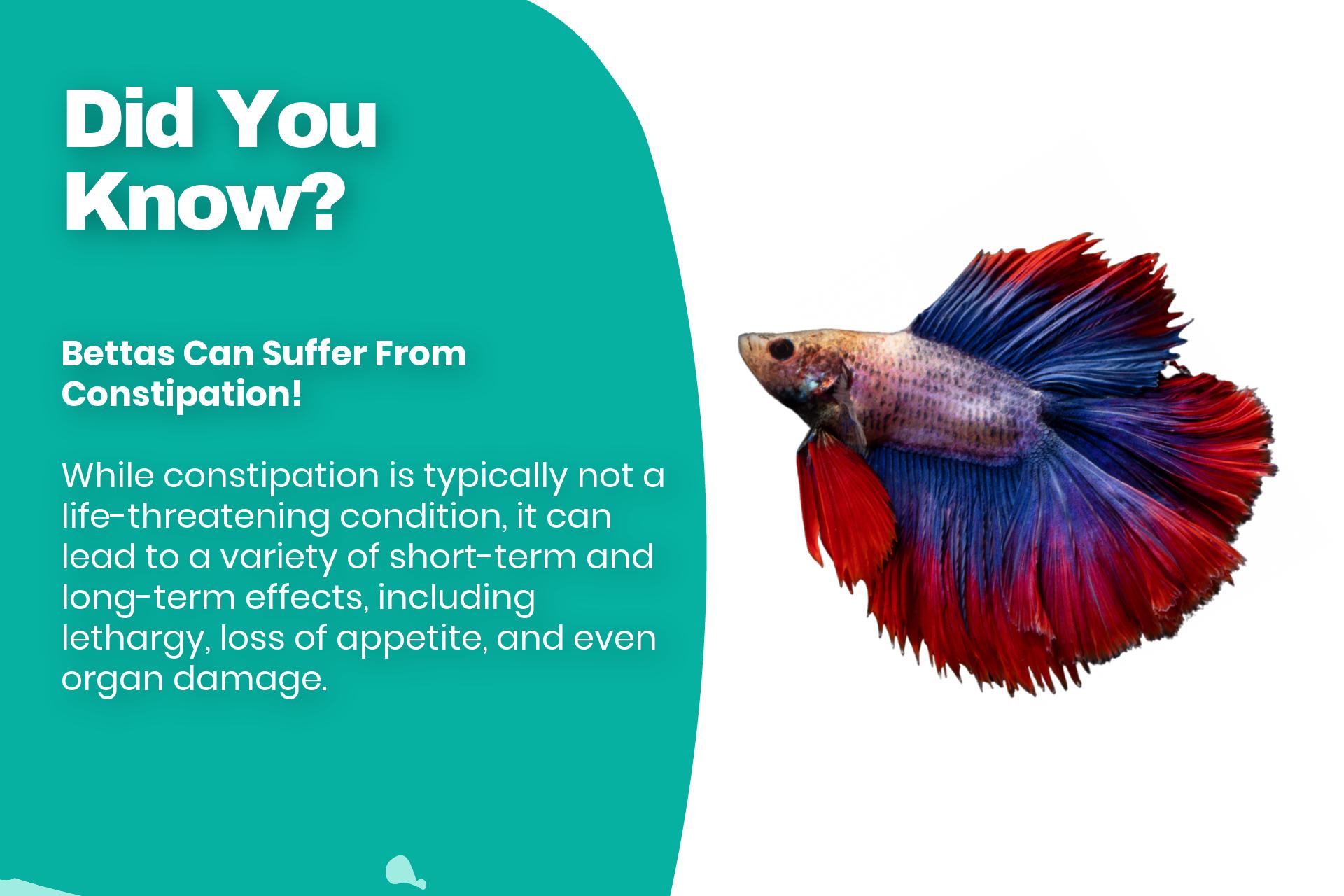
If you’ve noticed that your betta fish is at the bottom of the tank most of the time, there could be a few reasons why.
Betta fish are known to be a bit lazy, so it’s common for them to spend more time at the bottom of the tank.
However, there are a few other reasons why your betta fish might be at the bottom of the tank more often than usual.
Table of Contents
Quick Answer
If you notice that your betta fish is spending more time at the bottom of the tank than usual, there could be several reasons why.
Some possible causes include poor tank conditions, swim bladder disease, incorrect tank mates, the water being too hot or too cold, a current that is too strong, or simply that the fish is napping.
To ensure that your betta fish stays healthy and happy, it is important to maintain a clean and healthy tank environment, monitor the water quality, and watch their behavior closely. Always consult with a veterinarian if you suspect your betta fish has any serious health concerns.
Here are the top 7 reasons why your betta fish is at the bottom of the tank.
1. Ammonia Poisoning
Ammonia is a toxic substance that’s produced when fish waste breaks down, and it can quickly build up to toxic levels in a fish tank that’s not properly maintained.
Ammonia poisoning is a serious health threat to fish, and it can be fatal if left untreated. There are a few signs that your fish may be suffering from ammonia poisoning, including:
- listlessness
- lethargy
- loss of appetite.
If you notice any of these signs, it’s important to test the water in your tank for ammonia levels and take action to remove the ammonia if it’s present.
There are a few different ways to remove ammonia from a fish tank, including:
- water changes
- filtration
- chemical treatments.
2. Poor Tank Conditions
If you’ve noticed your betta fish spending more time at the bottom of the tank, it’s likely due to poor tank conditions.
There are a few things that can cause poor tank conditions, such as low oxygen levels, high ammonia levels, or high pH levels.
These conditions can be caused by a number of things, such as:
- overfeeding
- underfeeding
- not cleaning the tank regularly
If you suspect that poor tank conditions are the reason why your betta fish is at the bottom of the tank, there are a few things you can do to fix the problem:
- Check the oxygen levels in the tank and make sure they’re high enough.
- Check the ammonia levels and make sure they’re low.
- Check the pH levels and make sure they’re in the proper range.
If you can fix the poor tank conditions, your betta fish will likely return to normal.
3. Swim Bladder Disease
If your betta fish has been swimming at the bottom of its tank, there’s a chance it might have swim bladder disease.
This is a condition that affects the swim bladder, which is a sac that allows fish to control their buoyancy. If the swim bladder is damaged or doesn’t work properly, the fish will have trouble swimming and may end up sinking to the bottom of the tank.
There are a few different things that can cause swim bladder disease in betta fish, including:
- infection
- constipation
- genetics
In some cases, it can be treated with medication, but in severe cases, the fish may need to be euthanized. If you think your betta fish might have swim bladder disease, it’s important to take it to a vet who can properly diagnose and treat the condition.
4. Wrong Tank Mates
If you’ve noticed your betta fish hanging out at the bottom of your tank more than usual, it could be because they’re not compatible with their tank mates.
Bettas are territorial fish and need their own space, so putting them in a tank with other fish can be stressful for them.
If you’re not sure whether your betta’s tank mates are the problem, watch their behavior closely. If they’re constantly hiding or swimming erratically, it’s a good indication that they’re not comfortable.
5. The Water is Too Hot Or Too Cold
Betta fish are tropical fish and prefer water that is 70 – 80 degrees Fahrenheit. If the water in your tank is colder or hotter than this, it could be stressing out your fish and causing it to stay at the bottom of the tank.
If you think the water temperature isn’t right, there are a few things you can do to help your fish:
- Check the water temperature with a thermometer to see if it’s above their ideal range.
- If it is, slowly decrease the temperature a few degrees at a time.
- Otherwise, slowly increase the temperature a few degrees at a time.
- You can also add a floating thermometer to the tank so you can easily keep an eye on the temperature.
If you’re not sure how to increase or decrease the temperature of your tank, or if the water temperature is only slightly too high or low, you can also try moving your betta to a smaller tank or bowl.
This will give them a smaller area to heat up or cool down, making it easier for them acclimate.
6. The Current Is Too Strong
Betta fish are not strong swimmers and they can tire easily. A strong current can cause your betta fish to become stressed and it can also make it difficult for them to get food.
If you think that the current in your tank is too strong, there are a few things that you can do to fix the problem:
- You can try reducing the flow of your filter.
- You can also add plants to your tank. Plants will help to create pockets of calmer water for your fish to rest in and make it easier for them to get food. If you don’t have live plants, you can try using artificial plants.
- Rearranging the décor in your tank to create more sheltered areas.
7. The Betta Fish Is Sleeping
Betta fish are known to be adept swimmers and will often remain in the middle or top of the tank where they can easily access oxygen.
However, when they are tired or want to sleep, they will sink to the bottom of the tank where it is more peaceful and quiet.
If you notice that your Betta fish is spending more time at the bottom of the tank than usual, it is likely because they are napping more often.
This is perfectly normal behavior and nothing to be concerned about.
However, if you notice that your Betta fish is not swimming as much or is having difficulty staying afloat, it could be a sign of a more serious health issue and you should consult your veterinarian.
Final Thoughts
There are numerous reasons why your betta fish is at the bottom of the tank most of the time. The first thing you should do is to check your betta’s overall condition.
If there are any changes in its body like bloating or fading of color, it is more likely that your betta fish is sick.
However, if your betta is looking great, then the culprit is probably the tankmates or the water condition. Regardless, always maintain a clean and healthy tank environment for your fish.

